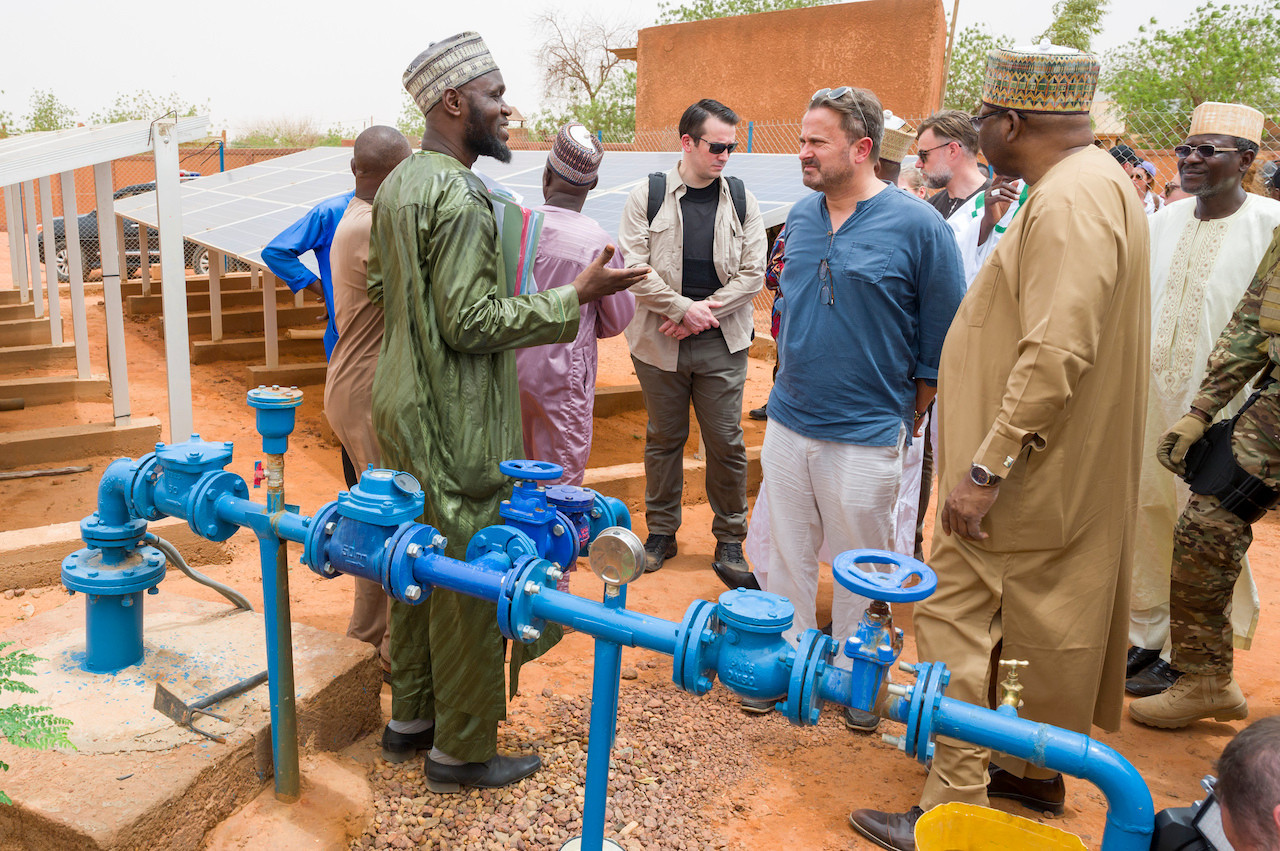Africa is extremely diverse. Consequently, implementing a bilateral cooperation strategy where the daily realities in individual countries are so different, but oddly similar--coupled with the fact that these disparities transcend the national level to diverse populations that co-exist within local communities--may take some time to see visible results. It’s like baking a cake for 54 children with separate allergies.
Luxembourg prioritises a limited number of least developed countries (LDCs) partners, and has been investing around 1% of its gross national income on official development assistance for decades, surpassing the UN’s target of 0.7%. However, assessing the effectiveness of development projects and spending in a context riddled with challenges, but that also offers countless opportunities, is often not straightforward.
As part of the recent delegation led by prime minister Xavier Bettel to Rwanda and Niger, it was fascinating to experience the grand duchy’s noble development cooperation activities at work, and to see the scope of projects being implemented on the ground to the benefit of local vulnerable populations.
Small country, big heart
“Luxembourg may be a small country geographically, but it has a very big heart,” was a sentence repeated by representatives in both countries during brief remarks. However, it may be that the benevolence of Luxembourg’s grant financing formula over the years influences this applause.
Whether or not this sentiment will remain after Luxembourg diversifies its financial instruments in partner countries--as specified in its new strategy for development cooperation, the road to 2030--is yet to be seen.
Yet, one thing is certain, Luxembourg intends to maximise the impact of its investments on the ground, and there is room for more private sector engagement.
During the three-and-a-half-day trip, two countries were on the agenda. In the republic of Niger--a priority partner country of Luxembourg’s development cooperation that is the beneficiary of one of the biggest budgets--the overwhelming need for support became obvious after only a few hours in the country. The highlight of the visit was a trip to a Luxembourg-funded crafts market, a drinking water supply system, and a camp for internally displaced persons, who fled their homes due to security tensions.
These projects represent only a fraction of wider investments over the years, mostly being implemented through Luxembourg’s development agency, LuxDev, international NGOs, together with local partners.
In Rwanda, the programme included a business breakfast with ICT and fintech representatives, a visit to a world conference hosted in Kigali, and private high-level meetings held on the sidelines.
Welcome development strategy update
For many on the trip, Rwanda is a shining example of what works. But drawing a direct comparison between Niger and Rwanda may be highly misleading as the socio-economic contexts varies widely. For one, Niger not only has to deal with a less favourable economy with climate change threatening agricultural output, its main source of GDP, but also with terrorist groups threatening the stability of the Sahel region. On the other hand, Rwanda has managed to overcome a deadly genocide that ravaged its population and economy in the mid- 1990s and is now on a path to become a middle-income country by 2035 and high-income economy by 2050.
With a changing development terrain and the huge disparities that exist within and between countries in the region, Luxembourg’s decision to update its development strategy is most welcome.
Nevertheless, multi-stakeholder partnerships initiated by both the public and private sector will be key to unlocking the potential impact of Luxembourg investments on the continent, while driving sustainable development and Luxembourg’s visibility.
For bilateral engagements, gradually moving away from investments in basic social services--as in the case of Niger-- to more innovative areas may help foster development and job creation from the grass root level. In 2020, WASH (water, sanitation and hygiene) projects accounted for almost half of financing in Niger, according to LuxDev. The only Business Partnership Facility (BPF) project by private sector partners in Niger specifically targets local farmers using space assets.
About 14 private sector officials representing around seven Luxembourg-based companies joined the delegation to both countries. The Luxembourg Chamber of Commerce has been organising trade missions to African countries for years and the Business Partnership Facility--funded by the Luxembourg foreign ministry--enables the implementation of sustainable business projects in developing countries.
The grand duchy’s new general strategy for development cooperation focuses on four priority areas--improving access to quality basic social services, enhancing socio-economic integration of women and youth, promoting inclusive and sustainable growth, and strengthening inclusive governance. A results-based action plan to back the strategy’s implementation over the next five years is in the works.
Synergising the efforts of all parties, diversifying investment instruments, shifting investment priorities, getting private sector players on board and prioritising areas with a potential to boost a ripple effect in the short-term--like the digital revolution enabling access, innovation and opportunities across the continent--will be critical to achieving impact on the ground.
